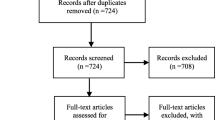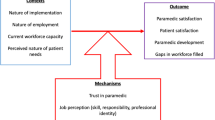Abstract
Introduction
A project aimed to develop and deliver a clinical training course in Accra, Ghana, to increase patient access to physicians trained in the diagnosis, treatment and management of rheumatological conditions.
Methods
We started with a scoping exercise followed by collaborative course curriculum development, co-delivered training course facilitated by both locally based rheumatologists and international faculty members. Evaluation data gathered from application forms, participant feedback forms and multiple-choice tests completed at the beginning and end of training and the test scores compared to evaluate a change in knowledge.
Results
A 4-day clinical training course developed and delivered to twenty medical professionals based across Ghana. Test scores suggest a 15.83% increase in clinical knowledge.
Conclusions
The training model with the curriculum design and delivery teams drawing expertise from both locally based rheumatologists and internationally based faculty has guaranteed both world-class approach and content while ensuring contextual relevance. The inclusion of leadership and Training of Trainer (ToT) elements into the model of training has maximised reach and increased teaching capacity. The programme has been well-received by participating medical professionals and faculty and has been demonstrated to be effective within this multinational programme and the methodology may be applicable to similar needs in other countries.
Key Points • The growing burden of musculoskeletal disease in West Africa means that strengthening capacity in the specialty of rheumatology is more important than ever. • A pilot workshop to strengthen capacity in rheumatology care in Ghana with the curriculum design and delivery teams drawing expertise from both the UK and West Africa has guaranteed both world-class approach and content while ensuring contextual relevance. • The programme has been well-received by participating medical professionals and faculty and may be applicable to similar needs in other countries across sub-Saharan Africa. |


Similar content being viewed by others
Data availability
The datasets generated during and/or analysed during this project are available from the corresponding author on reasonable request.
References
Hofheinz E Prospects for treating patients with arthritis in African countries with few rheumatologists, January 31, 2020. http://www.the-rheumatologist.org/article/prospects-treating-patients-arthritis-african-countries-rheumatologists/2
Hay SI, Abajobir AA, Abate KH et al (2017) GBD 2016 DALYs and HALE Collaborators. Global, regional, and national disability-adjusted life-years (DALYs) for 333 diseases and injuries and healthy life expectancy (HALE) for 195 countries and territories, 1990-2016. Lancet. 390(10100):1260–1344. https://doi.org/10.1016/S0140-6736(17)32130-X
Chopra A, Abdel-Nasser A (2008) Epidemiology of rheumatic musculoskeletal disorders in the developing world. Best Pract Res Clin Rheumatol 22:583–604
https://sustainabledevelopment.un.org/sdgs Accessed 31 January 2020
Acknowledgements
The RCP would like to thank the Rheumatology Initiative, the British Society for Rheumatology, the Ghana College of Physicians, the Korle Bu Teaching Hospital and the ILAR for their ongoing support. Special thanks to all of the faculty who are supporting the project by contributing to and reviewing course content and teaching
Code availability
Not applicable.
Funding
The project was funded by the International League of Associations for Rheumatology (ILAR), with additional support and resources provided by the Royal College of Physicians (RCP), the Rheumatology Initiative Ghana (tRi), the British Society for Rheumatology (BSR), the Ghana College of Physicians and Surgeons (GCPS) and Korle Bu Teach Hospital (KBTH) and Limbs and Things Limited.
Author information
Authors and Affiliations
Contributions
J.E., D.D., M.B.A.A., K.C. and A.J. contributed to the design and implementation of the project, to the analysis of the results and to the writing of the manuscript.
Corresponding author
Ethics declarations
Disclosures
None.
Ethics approval
The project was approved by the RCP Global Executive Board. The RCP Global Executive Board deemed neither approval from an ethics committee nor informed consent from the course participants was required for this medical education and capacity building project.
Consent to participate
The project was approved by the RCP Global Executive Board. The RCP Global Executive Board deemed neither approval from an ethics committee nor informed consent from the course participants was required for this medical education and capacity building project.
Consent for publication
Not applicable.
Additional information
Publisher’s note
Springer Nature remains neutral with regard to jurisdictional claims in published maps and institutional affiliations.
This article is part of the Topical Collection on Rheumatology in Africa
Rights and permissions
About this article
Cite this article
Eastin, J., Dey, D., Amissah-Arthur, MB. et al. Capacity building for the provision of rheumatological services in sub-Saharan Africa. Clin Rheumatol 40, 3439–3443 (2021). https://doi.org/10.1007/s10067-020-05058-8
Received:
Revised:
Accepted:
Published:
Issue Date:
DOI: https://doi.org/10.1007/s10067-020-05058-8




